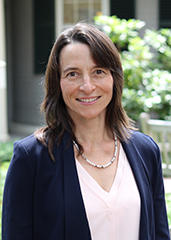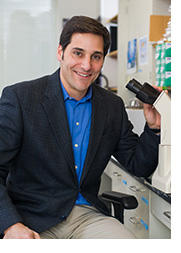Topics
- active learning (18)
- research assignments (6)
- libraries (1)
- literature-based learning (2)
- multimedia (5)
- museums (6)
- object learning (7)
- online learning (5)
- peer instruction (10)
- storytelling (2)
- learning management system (2)
- syllabus design (3)
- teaching empathy (3)
- teaching fellows (1)
- lecture (3)
- learning goals (8)
- assessment (6)
- data (3)
- backward design (3)
- blended approaches (12)
- case-based learning (8)
- classroom contracts (7)
- classrooms and space (3)
- collaborative learning (27)
- community events (1)
- course transformation (7)
- devices (3)
- learning by making (5)
- discussion (24)
- engaged scholarship (4)
- experiential learning (16)
- feedback (18)
- group work (8)
- guest speakers (7)
- interdisciplinary (6)
- leadership (3)
Send feedback
Subscribe
Copyright © 2024 The President and Fellows of Harvard College | Privacy | Accessibility | Digital Accessibility | Report Copyright Infringement


 Dr. Carl Novina, Associate Professor of Medicine, and his co-instructor Shannon Turley, amended the traditional graduate seminar Critical Reading for Immunology to teach students comprehension and presentation skills essential to a career in biomedical science. To introduce a topic, students read research papers and present a focused background on the field the paper sought to advance. Then, rather than discussing the paper linearly, students select a key figure that best highlighted the main point. Throughout the semester,students revisit central points of papers and diagram them on the white board—“an effective means to help students better process information and have greater insights into central concepts from the presentations and papers.”
Dr. Carl Novina, Associate Professor of Medicine, and his co-instructor Shannon Turley, amended the traditional graduate seminar Critical Reading for Immunology to teach students comprehension and presentation skills essential to a career in biomedical science. To introduce a topic, students read research papers and present a focused background on the field the paper sought to advance. Then, rather than discussing the paper linearly, students select a key figure that best highlighted the main point. Throughout the semester,students revisit central points of papers and diagram them on the white board—“an effective means to help students better process information and have greater insights into central concepts from the presentations and papers.” Alfred Guzzetti, Osgood Hooker Professor of Visual Arts, dedicates the final session of
Alfred Guzzetti, Osgood Hooker Professor of Visual Arts, dedicates the final session of